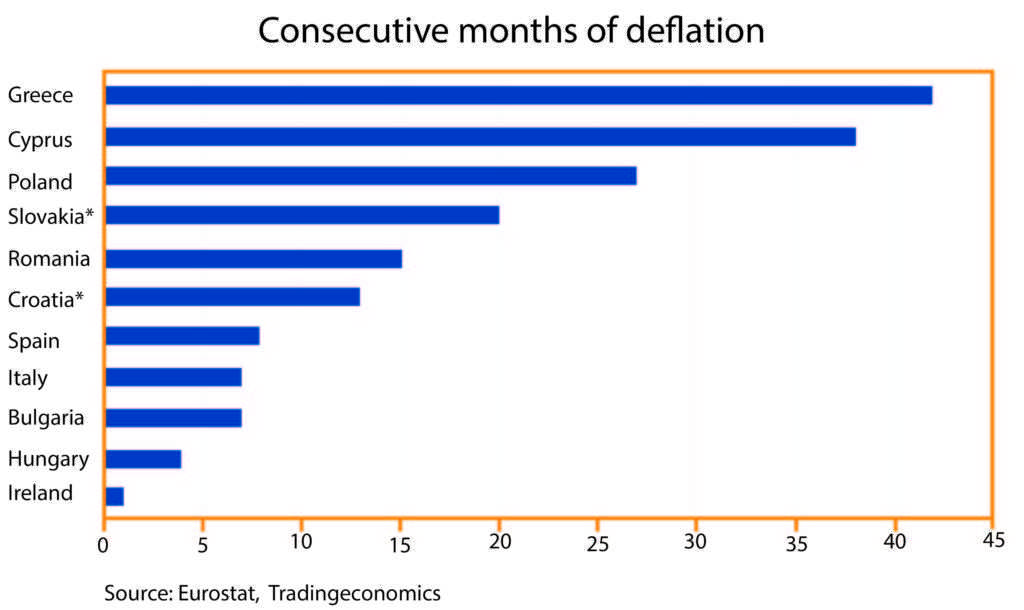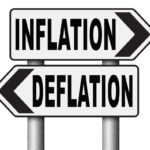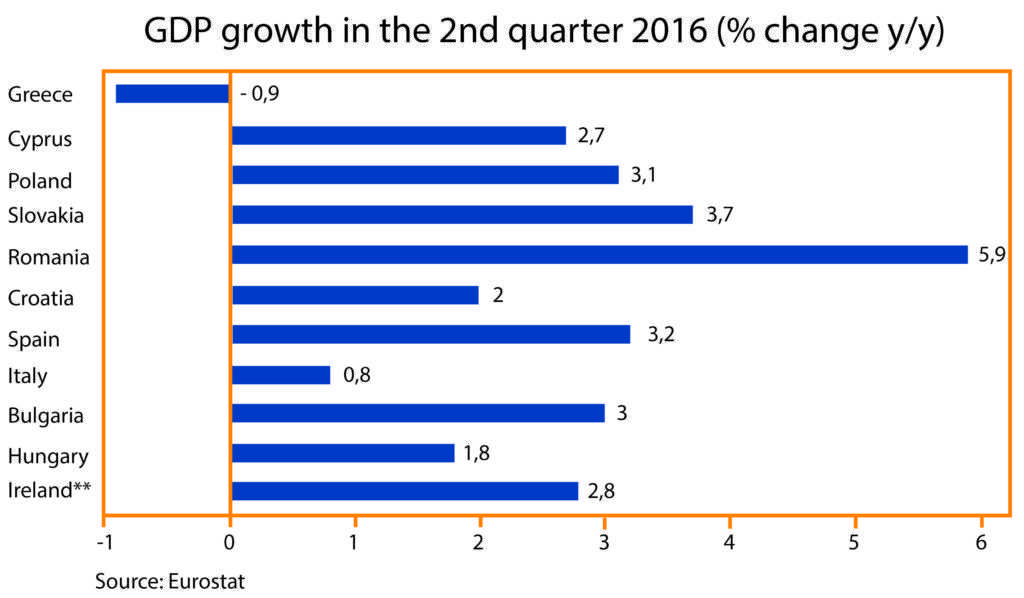While Mario Draghi is pursuing his campaign against deflation that is allegedly so bad for the economy, almost all European countries with deflation have recorded quite a significant GDP growth in the 2nd quarter 2016. The only one deflation-country that is still in recession is – not surprisingly – Greece. Poland, Slovakia and Romania with an over-one-year deflation are at the fore of the EU fastest growing states.
Greece’s deflation has lasted for more than three years, but this is a special case of economics. Deflation in Cyprus has also been lasting for more than three years and still the island has been able to boost its economy. Poland, Slovakia and Romania with their longer-than-one-year deflation are in the vanguard of the European GDP growth. Short-term deflation has not damaged Spanish, Bulgarian or Hungarian growth either.
 *Up to July, no data for August
*Up to July, no data for August
Why is it so? As Total-Croatia-News reports, “the fall in prices has a positive effect on the economic recovery by offloading incomes, with citizens spending the newly-available money on buying products and services.”
“The decrease in the cost of energy and food, which are the main causes of low inflation rates, has led to growth in household disposable income. Consumers cannot delay the consumption of food and energy, which is why there has been no negative impact on consumer spending due to the decrease of prices in these two segments, which is usually a characteristic of deflation”, explains the Croatian National Bank.
“In addition, there is no debt deflation. On the contrary, according to the central bank, since interest expenses are becoming less of a burden for consumers and construction industry, they have more funds to spend elsewhere. Finally, deflation has had a positive effect on production costs.”





